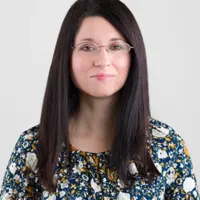About Reach Behavioral Health
Reach Behavioral Health is located in Brook Park, Ohio, and offers some really valuable treatment options for drug and alcohol addictions, as well as dual diagnosis mental health conditions. Their levels of care include day treatment and other outpatient programs that treat substance abuse and mental health issues distinctly. They treat children, teens and adults who are struggling with any of these issues.
Day Treatment for Addiction
Their day treatment program can help you learn how to regulate your emotions by engaging in activities to promote healthy management of your emotions. They’re also big on self-awareness and setting goals that encourage you to pursue personal objectives.
You’ll take part in relationship-building activities with your peers and learn skills development. You’ll also learn positive coping skills and how to manage symptoms that pop up in ineffective ways through all your vocational, educational and independent aspects of life.
Ketamine Therapy for Depression
They offer ketamine therapy, which has been shown to be effective for some people struggling with depression. Spravato, which is an esketamine nasal spray that is FDA-approved for treating depression, is what’s commonly known as ketamine therapy in the broader sense. It may offer rapid relief from depression symptoms, a greater reduction in depressive symptoms after four weeks, sustained improvement of depressive symptoms, and reduction in suicidal thoughts and behaviors.
Counseling Options
Their program also offers individual therapy, group therapy, couples therapy and family therapy, These can provide effective options to treat your illness or addiction. They also offer psychotherapy and psychiatry. If you suffered from domestic abuse or have suffered a loss and are grieving, they offer specialized services that can help you with these challenges.
Rehab Score
Location
Accepted Insurance
Other Forms of Payment
Self-pay involves paying for treatment out of your own pocket. You can use savings or credit, get a personal loan, or receive help from family and friends to fund your treatment. If you don't have insurance or your insurance plan doesn't cover a specific program, self-pay can help ensure you still get the care you need.
Private insurance refers to any kind of healthcare coverage that isn't from the state or federal government. This includes individual and family plans offered by an employer or purchased from the Insurance Marketplace. Every plan will have different requirements and out of pocket costs so be sure to get the full details before you start treatment.
Addiction Treatments
Levels of Care
Outpatient Programs (OP) are for those seeking mental rehab or drug rehab, but who also stay at home every night. The main difference between outpatient treatment (OP) and intensive outpatient treatment (IOP) lies in the amount of hours the patient spends at the facility. Most of the time an outpatient program is designed for someone who has completed an inpatient stay and is looking to continue their growth in recovery. Outpatient is not meant to be the starting point, it is commonly referred to as aftercare.
Treatments
A combined mental health and substance abuse rehab has the staff and resources available to handle individuals with both mental health and substance abuse issues. It can be challenging to determine where a specific symptom stems from (a mental health issue or an issue related to substance abuse), so mental health and substance abuse professionals are helpful in detangling symptoms and keeping treatment on track.
Programs
Adult rehab programs include therapies tailored to each client's specific needs, goals, and recovery progress. They are tailored to the specific challenges adult clients may face, including family and work pressures and commitments. From inpatient and residential treatment to various levels of outpatient services, there are many options available. Some facilities also help adults work through co-occurring conditions, like anxiety, that can accompany addiction.
Clinical Services
Whether a marriage or other committed relationship, an intimate partnership is one of the most important aspects of a person's life. Drug and alcohol addiction affects both members of a couple in deep and meaningful ways, as does rehab and recovery. Couples therapy and other couples-focused treatment programs are significant parts of exploring triggers of addiction, as well as learning how to build healthy patterns to support ongoing sobriety.
Research clearly demonstrates that recovery is far more successful and sustainable when loved ones like family members participate in rehab and substance abuse treatment. Genetic factors may be at play when it comes to drug and alcohol addiction, as well as mental health issues. Family dynamics often play a critical role in addiction triggers, and if properly educated, family members can be a strong source of support when it comes to rehabilitation.
In individual therapy, a patient meets one-on-one with a trained psychologist or counselor. Therapy is a pivotal part of effective substance abuse treatment, as it often covers root causes of addiction, including challenges faced by the patient in their social, family, and work/school life.
Staff & Accreditations
Staff

Lissette Colon-Perez, PhD, LPCC/S
Director of Counseling

Leah Walters, LPCC/S
Director of Clinical Outreach

Carolyn Jenson, LPCC/S
Director of Clinical Compliance
Accreditations

The Commission on Accreditation of Rehabilitation Facilities (CARF) is a non-profit organization that specifically accredits rehab organizations. Founded in 1966, CARF's, mission is to help service providers like rehab facilities maintain high standards of care.
CARF Accreditation: Yes
Contact Information
5445 Smith Rd
Brook Park, OH 44142







